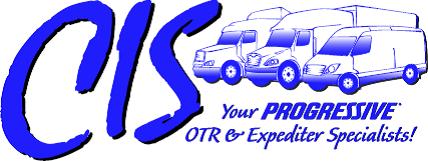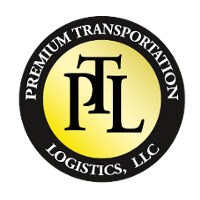Looking Both Ways
A Better Understanding of Trucking Insurances
 This post of
Look Both Ways will
attempt to help you better understand different insurances. An upcoming issue of this blog will address
issues of liability and negligence. This is important because you as a driver
are exposed to liabilities. The carrier you are leased onto is exposed to
liabilities. Your actions could also be
deemed negligent. The carriers actions could be deemed negligent. The carrier and the driver share many
exposures to many different potential liabilities.
This post of
Look Both Ways will
attempt to help you better understand different insurances. An upcoming issue of this blog will address
issues of liability and negligence. This is important because you as a driver
are exposed to liabilities. The carrier you are leased onto is exposed to
liabilities. Your actions could also be
deemed negligent. The carriers actions could be deemed negligent. The carrier and the driver share many
exposures to many different potential liabilities.
A previous blog addressed steps to take if involved in an accident or an incident in order to protect the interests of your Carrier, the vehicle owner and yourself. You can find this blog and others at http://www.expeditersonline.com/trucking/writer3/index.html
Let’s take a look at the various insurances that pertain to the trucking industry and also some words and definitions used when discussing various trucking insurances.
Cargo Coverage – This coverage insures the freight which you are hauling. It may, or may not be required by the Regulations, but responsibility for cargo should surely be addressed in any shipping agreement. How do you know if you are required to carry cargo insurance? - It depends on the type of authority you apply for with FMCSA. If you apply for common carrier authority, you are required to have on file evidence of both liability (BI & PD) and cargo insurance. If you apply for contract authority, you are only required to have evidence of liability (BI & PD) insurance on file. Common carriers hauling low value goods as specified at 49 CFR 387.301(b) may request exemption from cargo insurance requirements by calling 202-366-9805 and asking that they be sent a cargo exemption form. Most reputable Carriers provide the cargo coverage and only hold owner-operators and/or drivers responsible for the insurance deductible. Be sure to review your contract (lease agreement) for specific details.
Comprehensive Insurance – Usually covers all events not typically covered by collision insurance for damage to your vehicle. Many times it will also cover personal items that are inside of the vehicle at the time of a loss, including clothing or other items. Comprehensive can also protect you in the cases of fire, theft, flood or vandalism. Some policies even go so far as to offer coverage for glass breakage.
In addition to the above coverage some insurance companies will also offer comprehensive coverage which may include:
· Towing or roadside assistance
· Rental vehicle while yours is being repaired and
· Special services such as locksmith and others
Deductible - A deductible is the dollar amount you pay out of pocket on a qualified insurance claim before your insurance policy’s coverage takes effect. Usually the higher the out of pocket expenses you take on, aka your deductible, the lower your overall insurance costs. Most Carriers retain an “Escrow†which is used as a retainer towards any possible future insurance deductible.
Insurance Agent –  An individual who sells and
services insurance policies as an independent agent representing multiple
underwriting insurance companies or as a direct agent who represents only one
company. An example of an insurance
agency is Commercial Insurance Solutions or C.I.S. – you know, the folks that
insure many owner-operators within the Expedite Industry and the same people
that put together the coolest Casino Night at the Expedite Expo each year. This is also the lady who has worked and
pioneered VOI (Verification of Insurance) for the Expedite industry through
TEANA (The Expedite Association of North America).
An individual who sells and
services insurance policies as an independent agent representing multiple
underwriting insurance companies or as a direct agent who represents only one
company. An example of an insurance
agency is Commercial Insurance Solutions or C.I.S. – you know, the folks that
insure many owner-operators within the Expedite Industry and the same people
that put together the coolest Casino Night at the Expedite Expo each year. This is also the lady who has worked and
pioneered VOI (Verification of Insurance) for the Expedite industry through
TEANA (The Expedite Association of North America).

Insurance Company - is a company that assumes the risk of a loss in exchange for payment (a premium). Examples of well-known truck insurance companies are Carolina Casualty, Great West, Westfield and of course Progressive.
Insurance Underwriting - underwriters evaluate the risk and the potential exposures to liability of prospective insurance customers (Carriers, owner-operators/fleet owners or individual drivers). They decide how much coverage the customer should receive, how much they should pay for it, or whether even to accept the risk and insure them. Underwriting involves measuring risk exposure and determining the premium that needs to be charged to insure that risk. Every insurance company sets their own risk guidelines for underwriters to follow.
Loss History or Loss Runs – a summary of all losses paid out from an insurance company on behalf of a particular Carrier, owner-operator (fleet owner) or driver (individual).
No Fault Insurance – a system of automobile or motor vehicle insurance where a party who is injured in an automobile accident recovers damages up to a specific amount against his own insurance company, regardless of who was responsible for the accident. Each party’s insurance companies pay for their insured’s damages.
Non-Trucking Liability – is the insurance coverage that you, the owner operator carry to protect the general public should you be at fault in an accident while you are not under your company’s dispatch. Most truckers refer to this coverage as “Bobtail†insurance. This insurance would pay if you have an at-fault accident while driving your truck on a Sunday morning to taking your spouse to your church service. Very seldom does NTL pay for a claim since most times the truck being in motion which is attributed to the trucking company. Motor Carrier (Carrier Companies require you the Owner-operator to carry NTL insurance). Please see Shelly Benish’s blog “Risky Business†on www.Expeditersonline.com for a more detailed explanation of Non-trucking Liability. Owner-operators usually pay a “fixed rate†per month for NTL coverage – generally around $50 per month for a $1 million policy.
Occupational Accident Insurance – OCC/ACC insurance is NOT Workers Compensation. It is insurance which covers the same things as Workers Compensation, usually at or above the same levels of Workers Comp. The cost for this insurance is usually a “fixed cost†(so many dollars) per month. Many OCC ACC policies can be custom tailored to individual needs or wants. Many Carriers will ask for proof of Workers Comp or OCC ACC coverage from their Owner Operators (Independent Contractors). Occupational Accident insurance can many times be obtained you’re the Carrier you are leased onto, or OOIDA.
Physical Damage - This coverage pays to fix your vehicle should you be involved in an accident where you are at fault. Physical Damage coverage is similar to “Collision†coverage on your car in many states. Premiums for Physical Damage insurance are usually based on a percentage of the value of the vehicle. It is advisable to adjust the value of your vehicle each year so that you are not overpaying for this insurance. Insurance companies will typically only pay out “book†or “lien†value. If you pay for $100,000 worth of coverage each year because that was what you paid for the vehicle new 4 years ago, the insurance company may only pay out say $72,000 on a total loss based on a book value of the vehicle, and you will have overpaid a substantial amount of money.
Premium - is the amount of money to be charged for a certain amount of insurance coverage. For Primary Liability insurance, trucking companies usually pay the premium based on one of the following methods:
· A “mileage basis†– premium based on (all) miles run by their trucks.
· A “per unit†basis – premium paid for each vehicle in fleet.
· Revenue basis – premium based on a percentage of the company’s revenue or sales.
How do insurance companies determine premiums? - having their underwriting departments analyzing exposure to risk and the loss history of the Carrier, owner-operator (fleet owner) or driver.
Primary Liability - the insurance coverage required of Motor Carriers (Carrier Company) by FMCSA/DOT. Motor Carriers are required to have “Public Liability Insurance†which pays for bodily injury; property damage and/or environmental restoration to the general public. The levels of required insurance ranges from $750,000 to $5,000,000 depending on commodities transported. For Carriers operating vehicles weighing under 10,001 pounds hauling non-hazardous freight the required insurance is $300,000. Obviously Carriers may, and usually do, opt for carrying higher levels of insurance than the minimum required amount.
Worker’s Comp – (Also called Industrial Insurance.) This coverage pays for Medical expenses caused by work related injuries. Worker’s Comp also pays the injured worker a percentage of their wages while the injured employee is unable to work. This coverage is for employees only – not independent contractors. Keep in mind that commercial truck insurance does not have medical coverage because when you are driving the truck you are working and should be covered under the Workers Comp provided by your employer. If you are an independent contractor YOU are your employer. In many states Worker’s Comp premiums are based on a percentage of employee wages. Some states, like Ohio, are “monopolistic†where you can only obtain Worker’s Comp through the state program. Other states allow insurance companies to write Worker’s Comp policies. Other interesting notes on Workers Comp: you (your employer) must pay into the state fund (Ohio) in order to collect benefits and also officers of a corporation are not required (Ohio) to pay into the program for themselves.
There are many sides to trucking insurance and so many bases to cover and so much exposure to risk and liability for Carriers, truck owners and even drivers. An upcoming blog will address risk, liability and negligence.
Disclaimer: This blog is NOT intended to give legal advice, nor be a substitute for any training required by the Regulations.
Till the next blog, Thank you drivers for all you do!. Please be safe!
John Mueller, CDS, COSS

